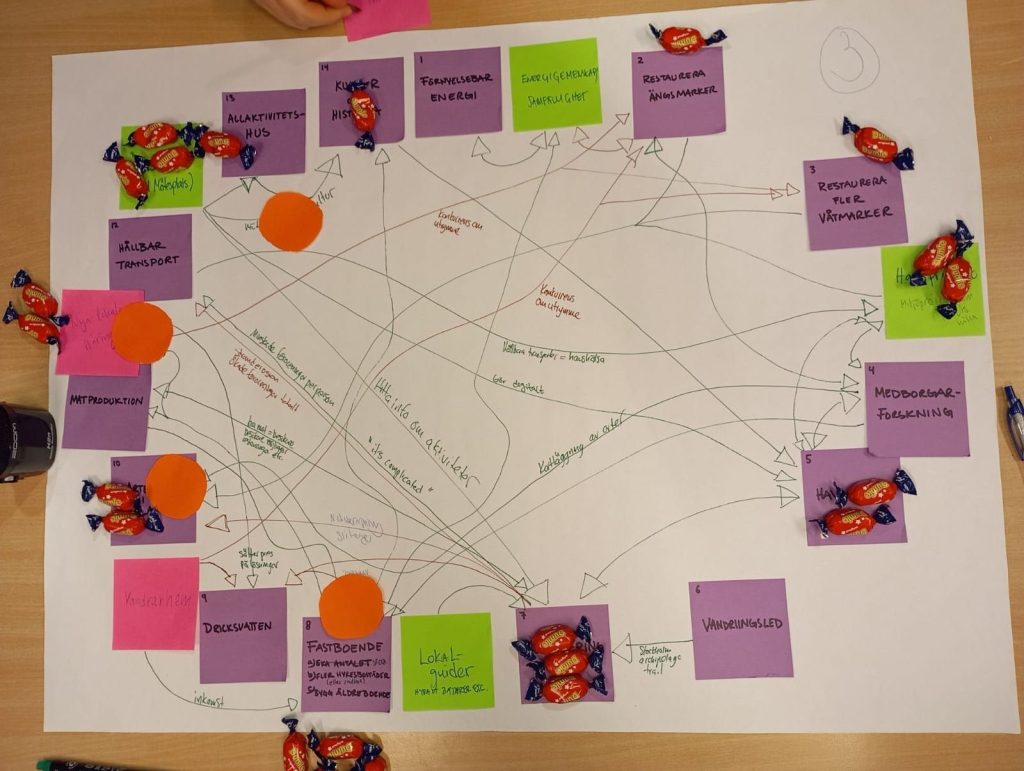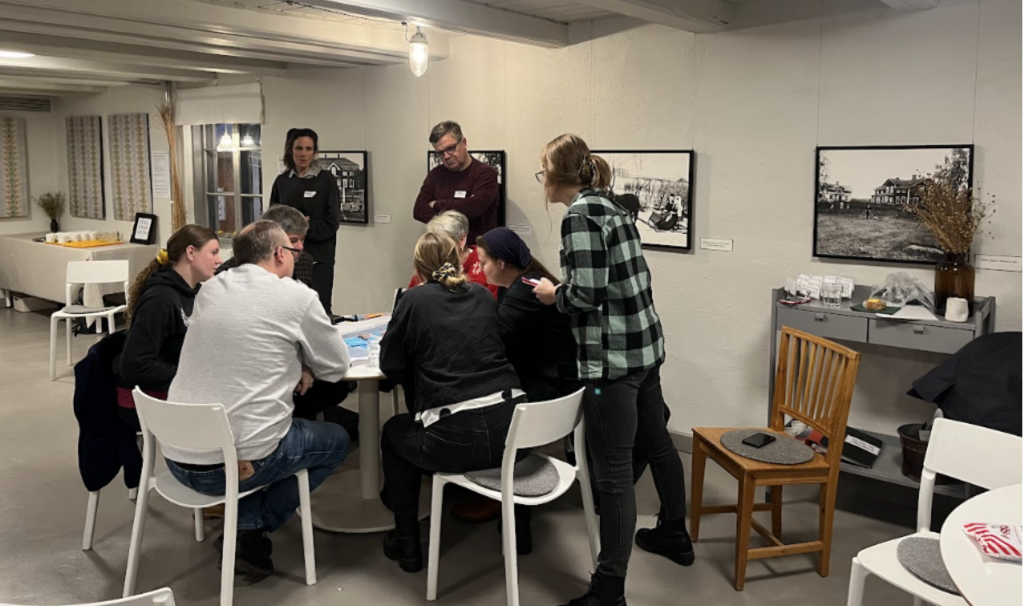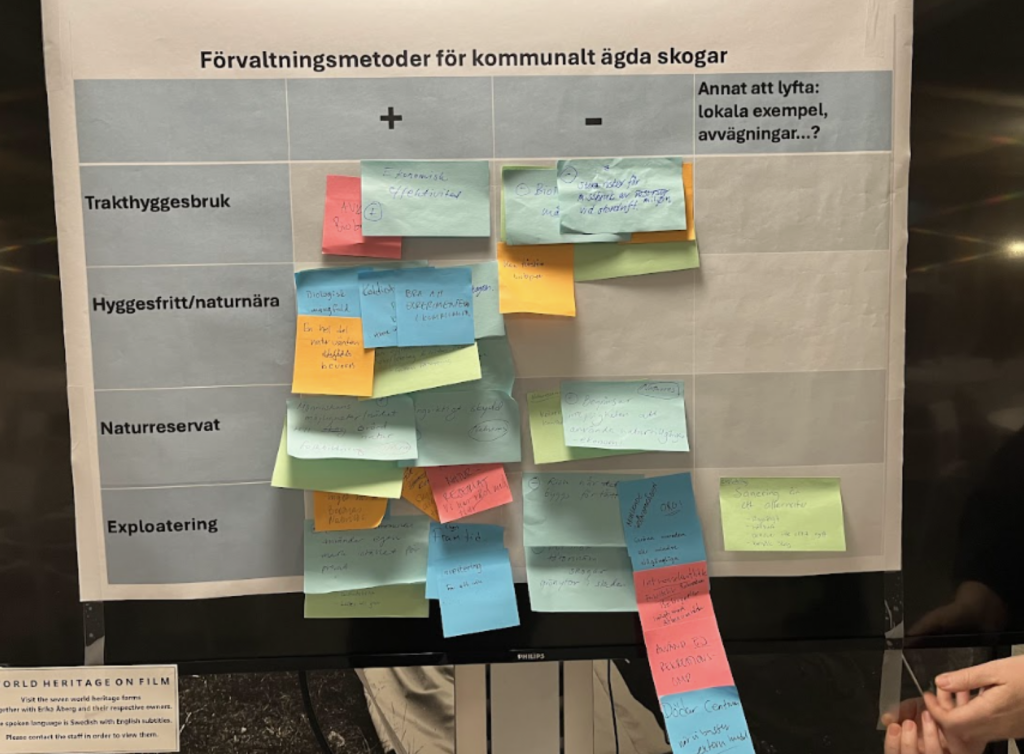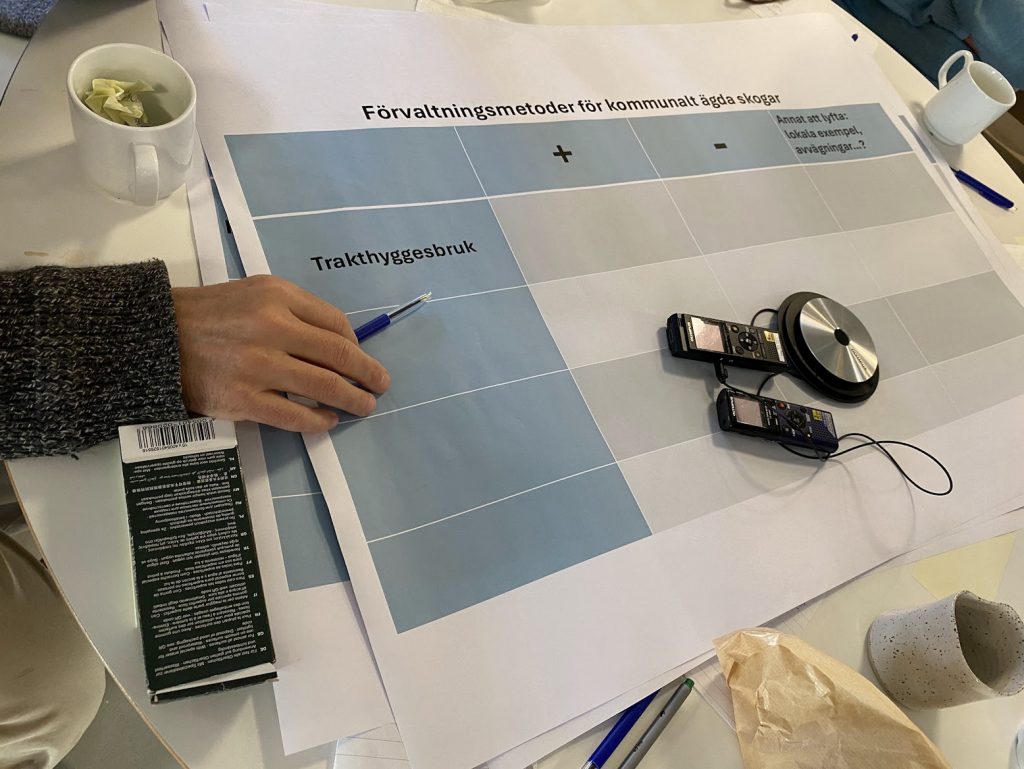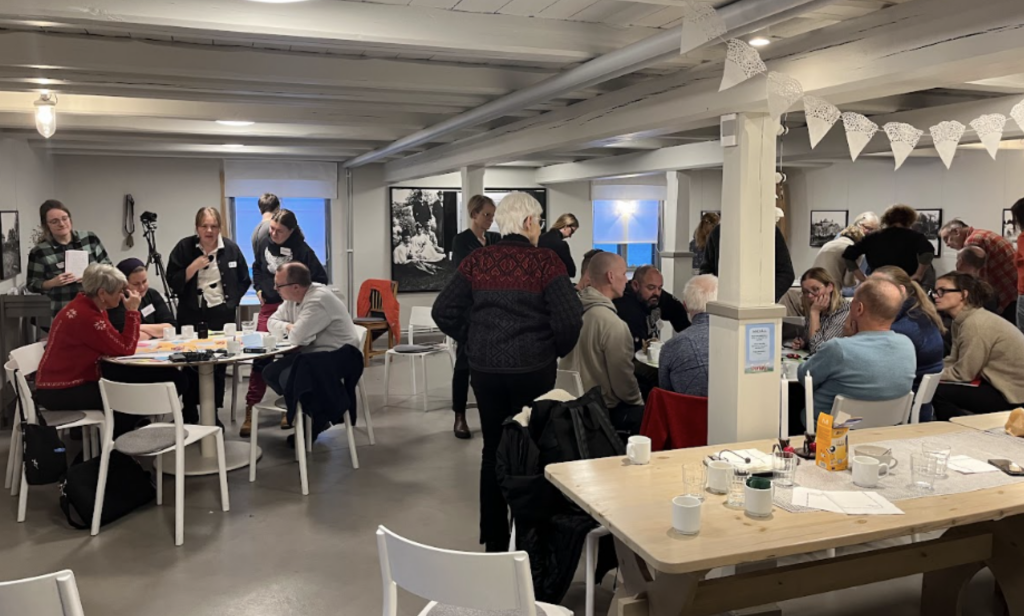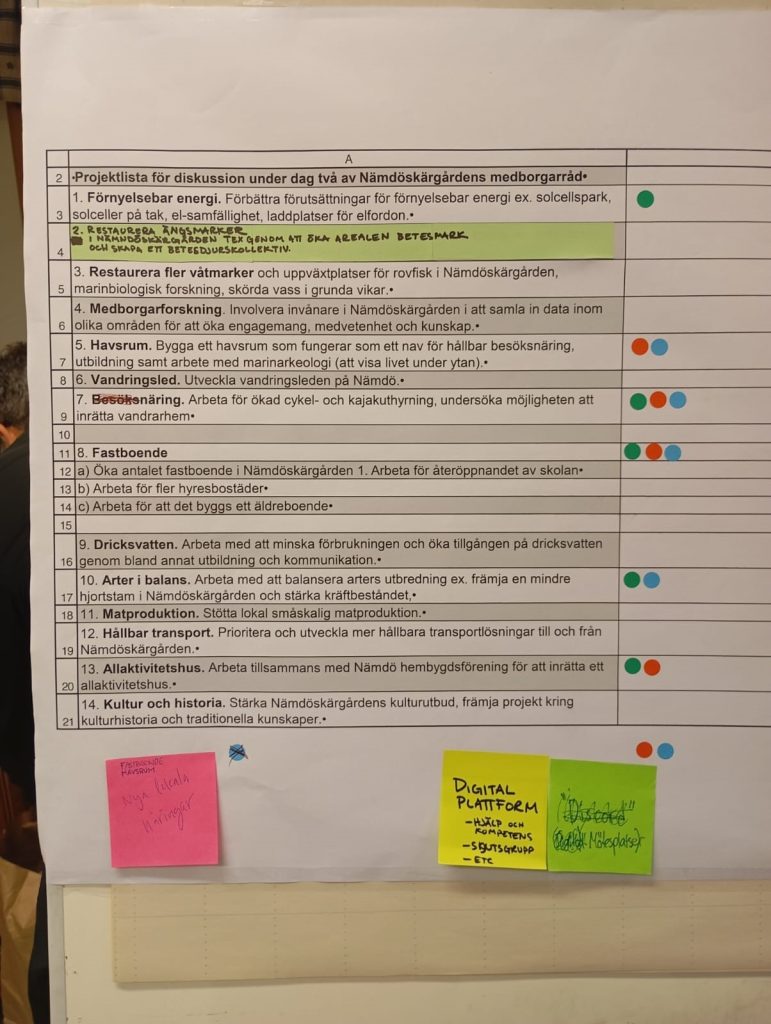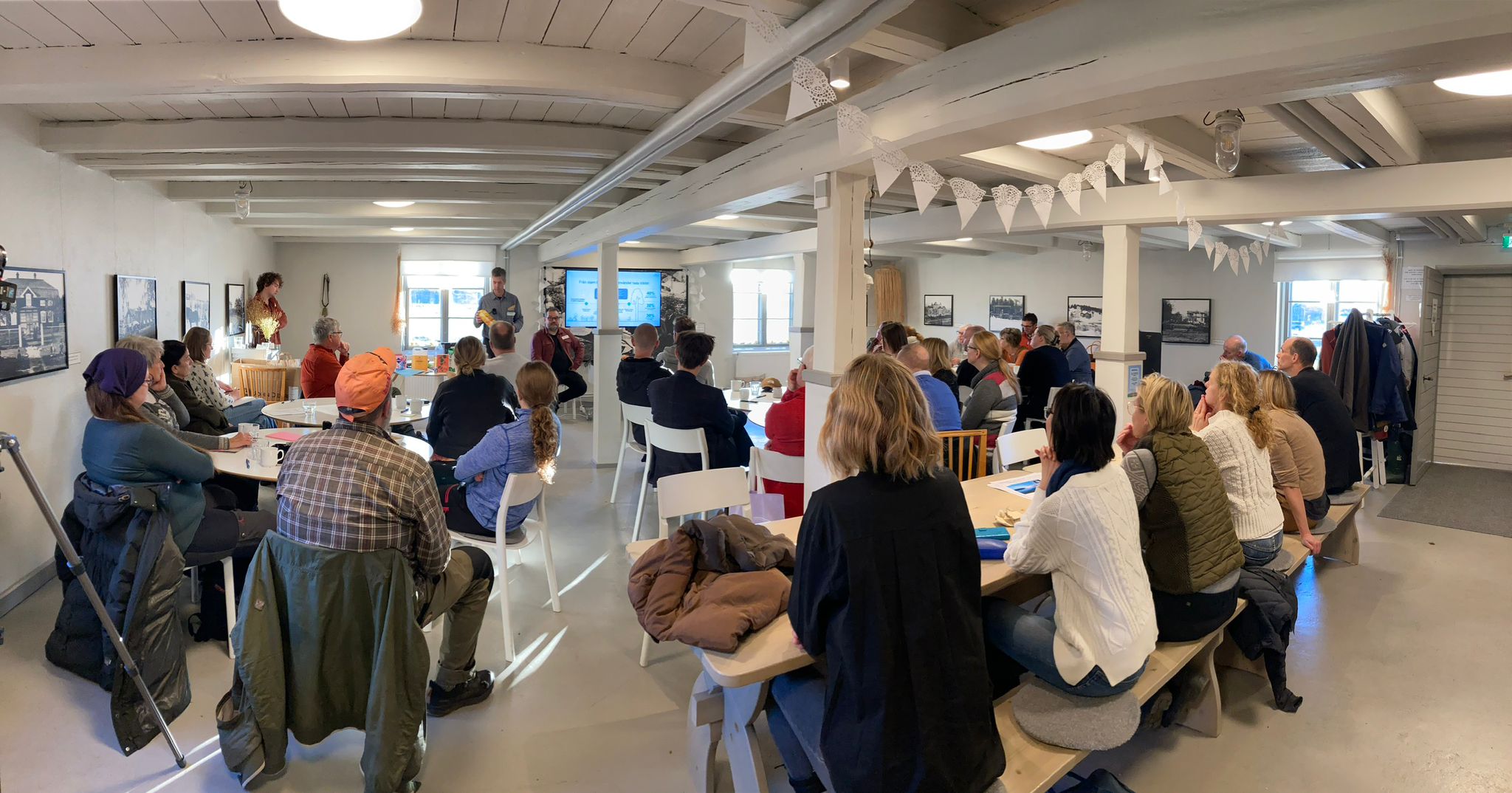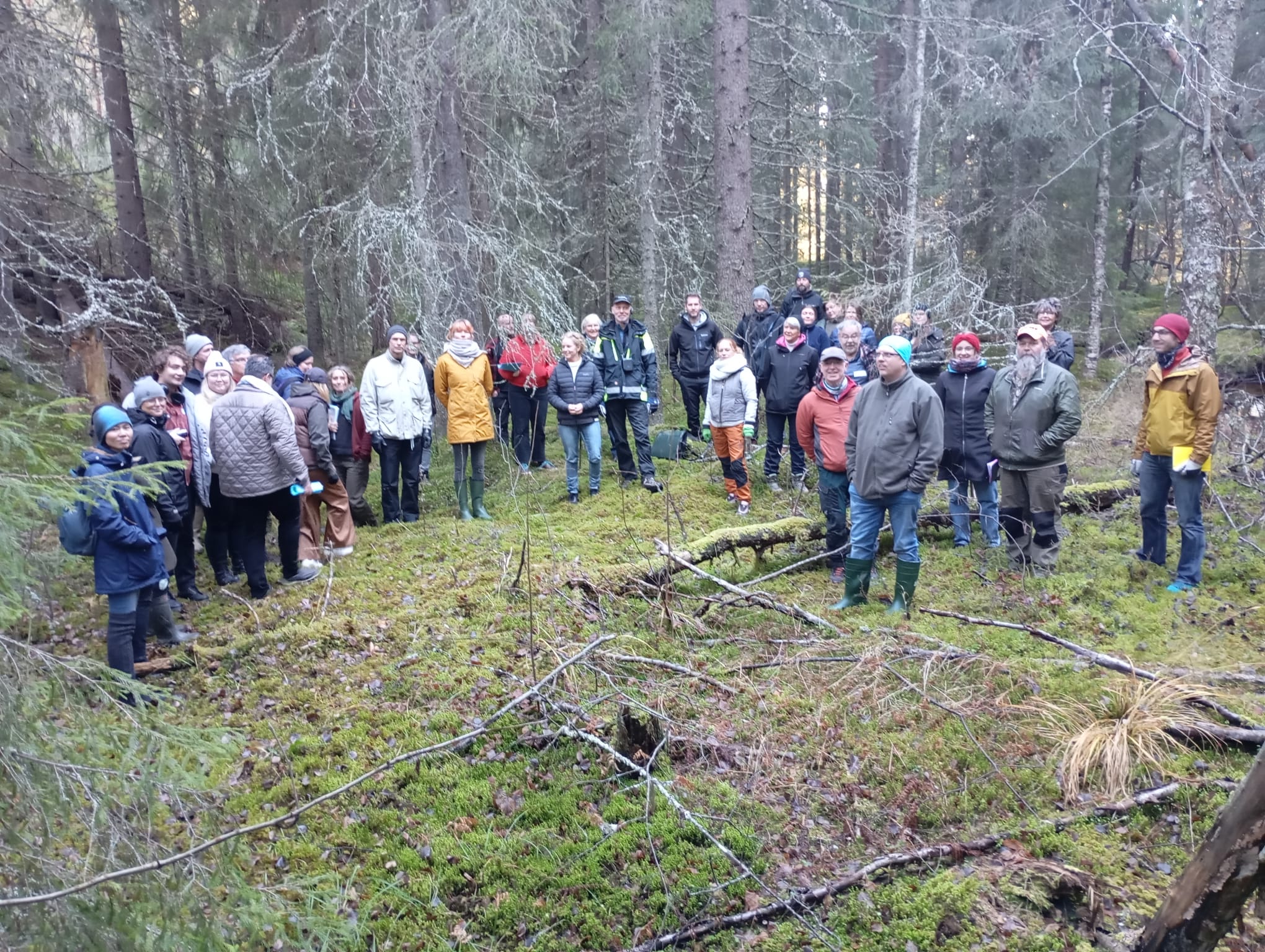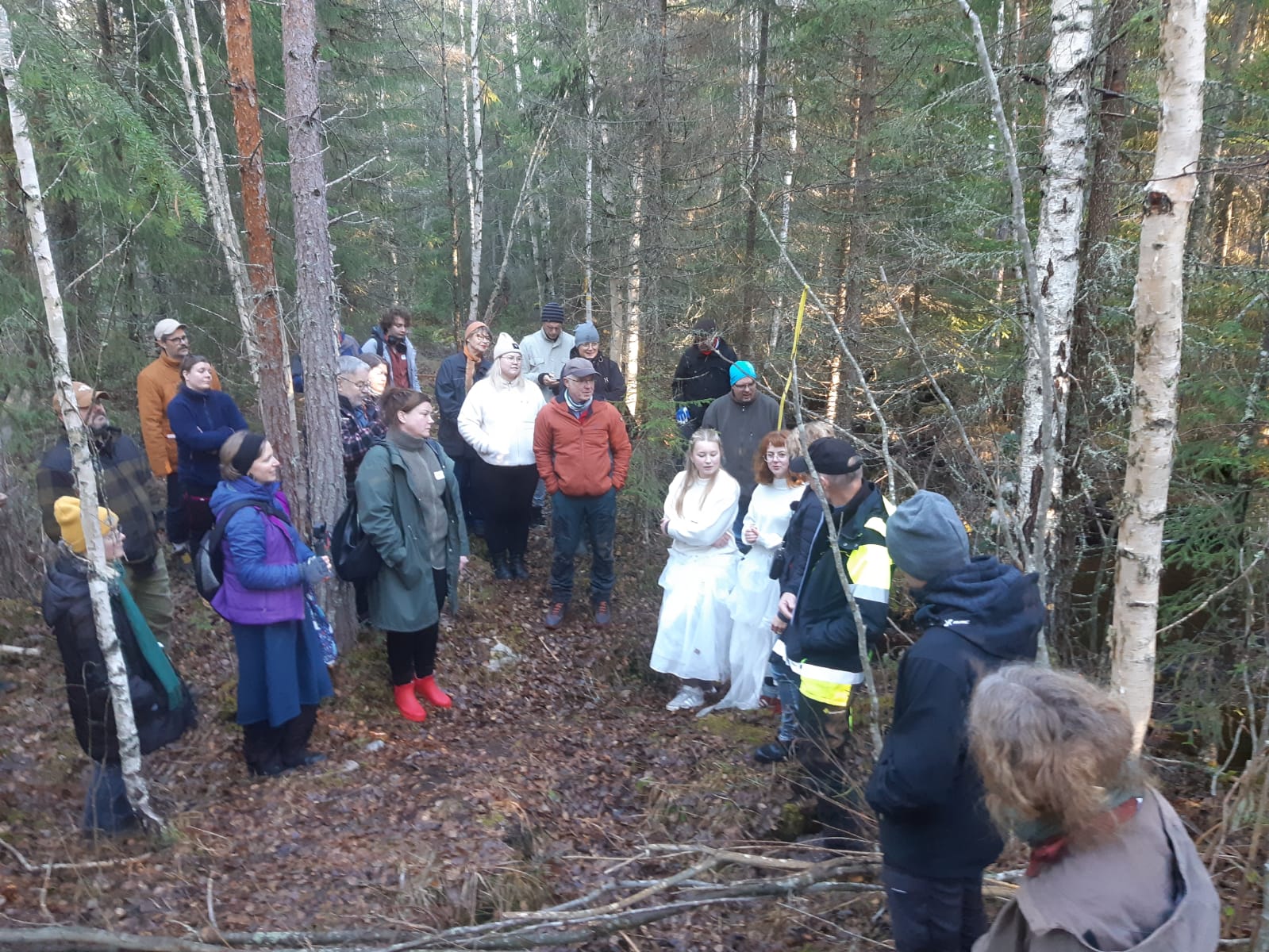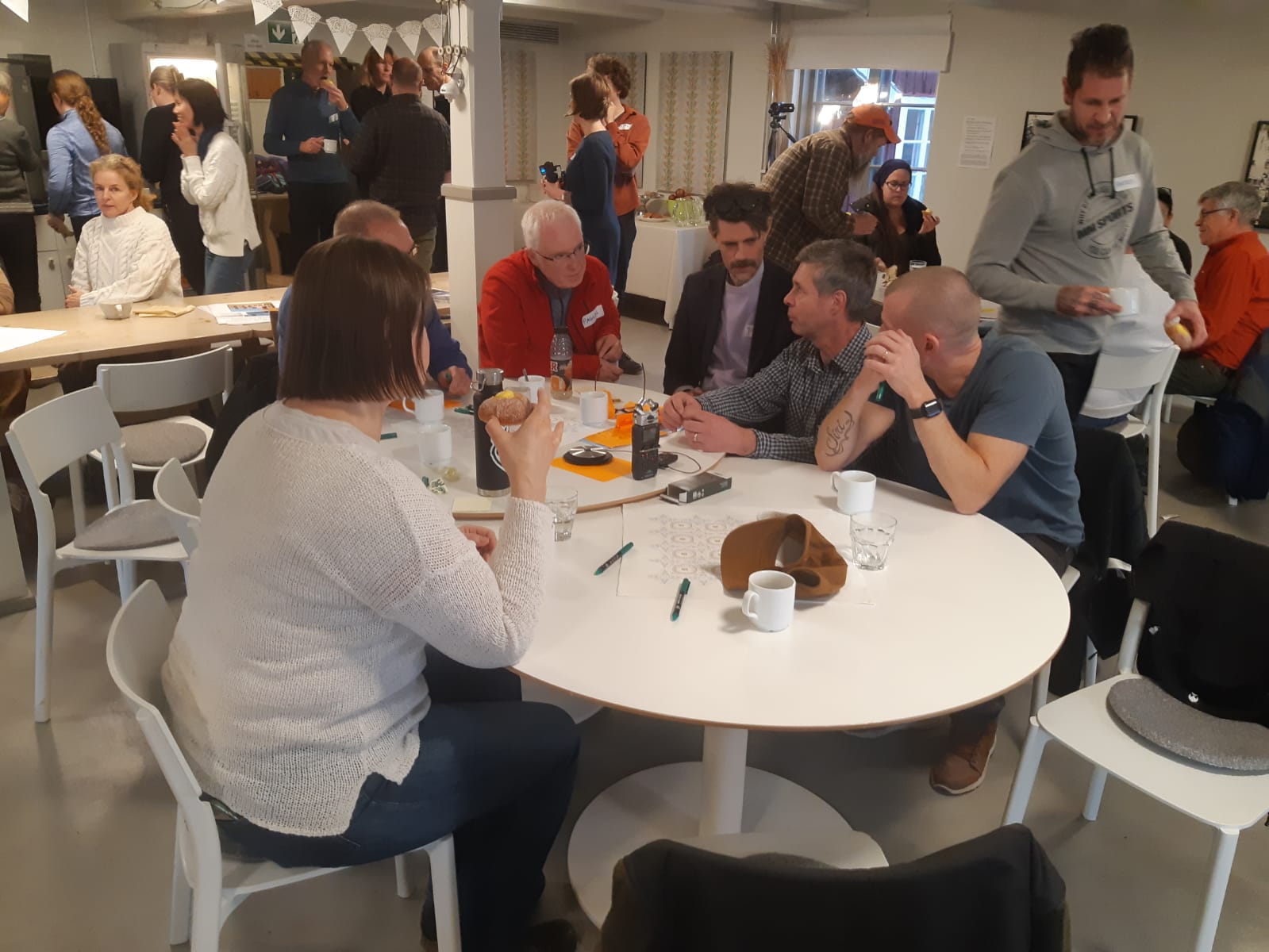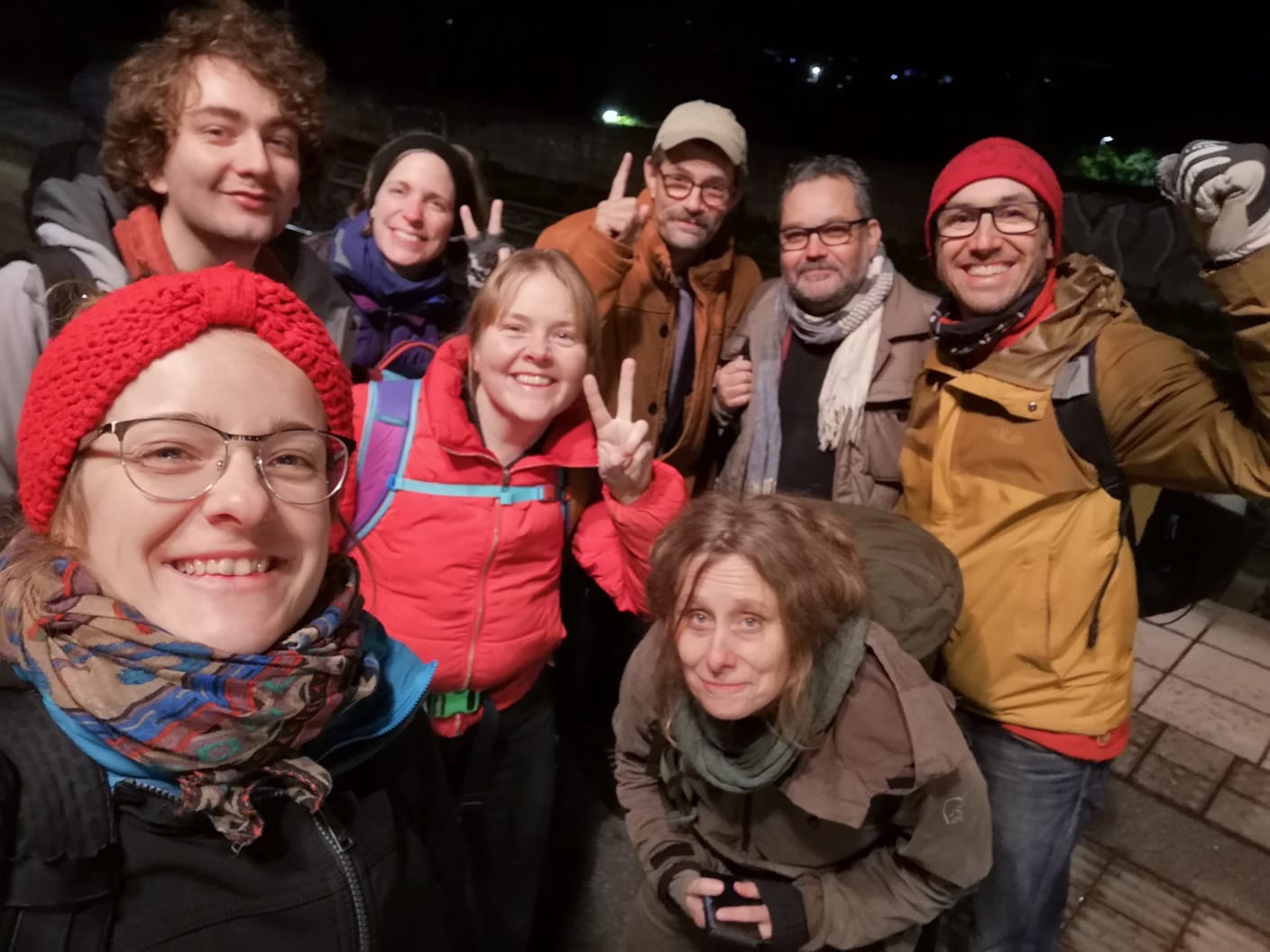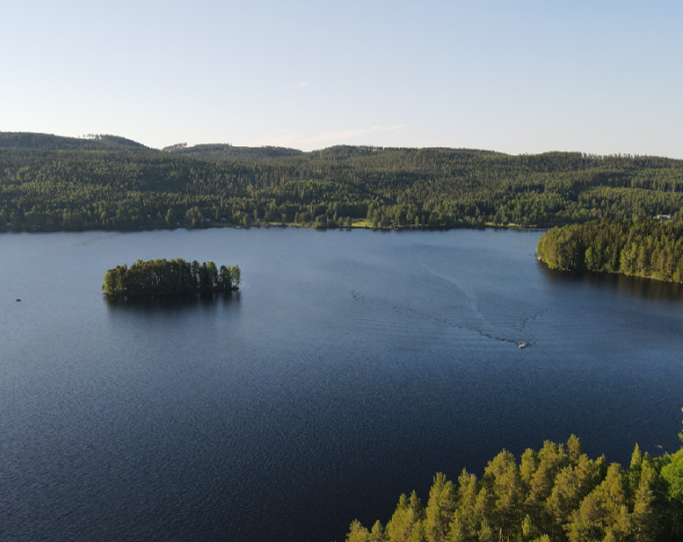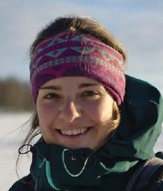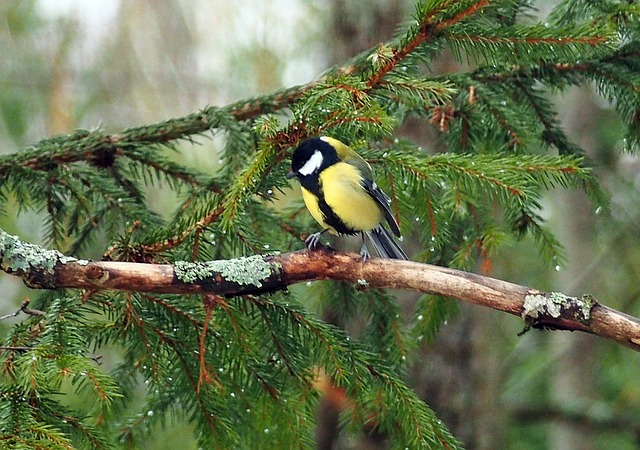In autumn 2024, 22 residents from Ljusdal, Ovanåker, and Bollnäs gathered to discuss the future of municipally-owned forests within the Voxnadalen Biosphere Reserve. Their task was to weigh the many values of the forest and recommend how these should be prioritized and managed. The result is an important indicator of how local citizens view forests and forestry, as well as democratic processes in landscape management.
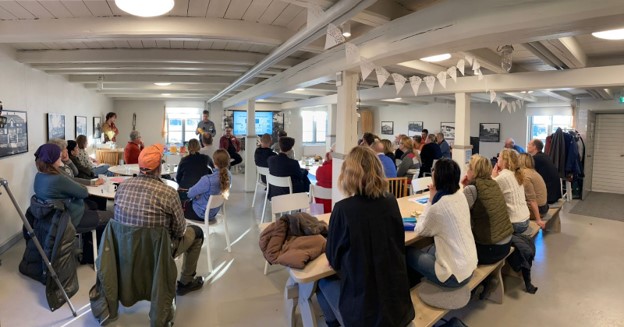
Broad participation
The citizens’ jury, which took place over two days in Alfta, Ovanåker municipality, was carried out through a stratified random selection from a pool of 5,000 invitees. The selection aimed to reflect the diversity of the population. Participants were compensated for their time and provided access to expert knowledge on the subject.
The central question guiding the jury’s work was:
Which of the forest’s various values should be prioritized in municipal forests, and how should they be managed to achieve these values?
Residents’ priorities: recreation, biodiversity, and identity
After discussions and knowledge-sharing, a majority of participants agreed that the municipality should primarily prioritize creating spaces for recreation, strengthening biodiversity, and preserving and developing regional identity in its forests.
Other important values highlighted included climate benefits, opportunities for berry and mushroom picking, consideration for future generations, tourism, and local employment. In contrast, economic values such as income, hunting, timber production, and raw materials for industry were generally deprioritized by most participants, though still considered important by some.
An especially interesting observation was that values linked to exploitation and the local economy increased in priority during the process, suggesting that discussion contributed to a more nuanced understanding among participants.
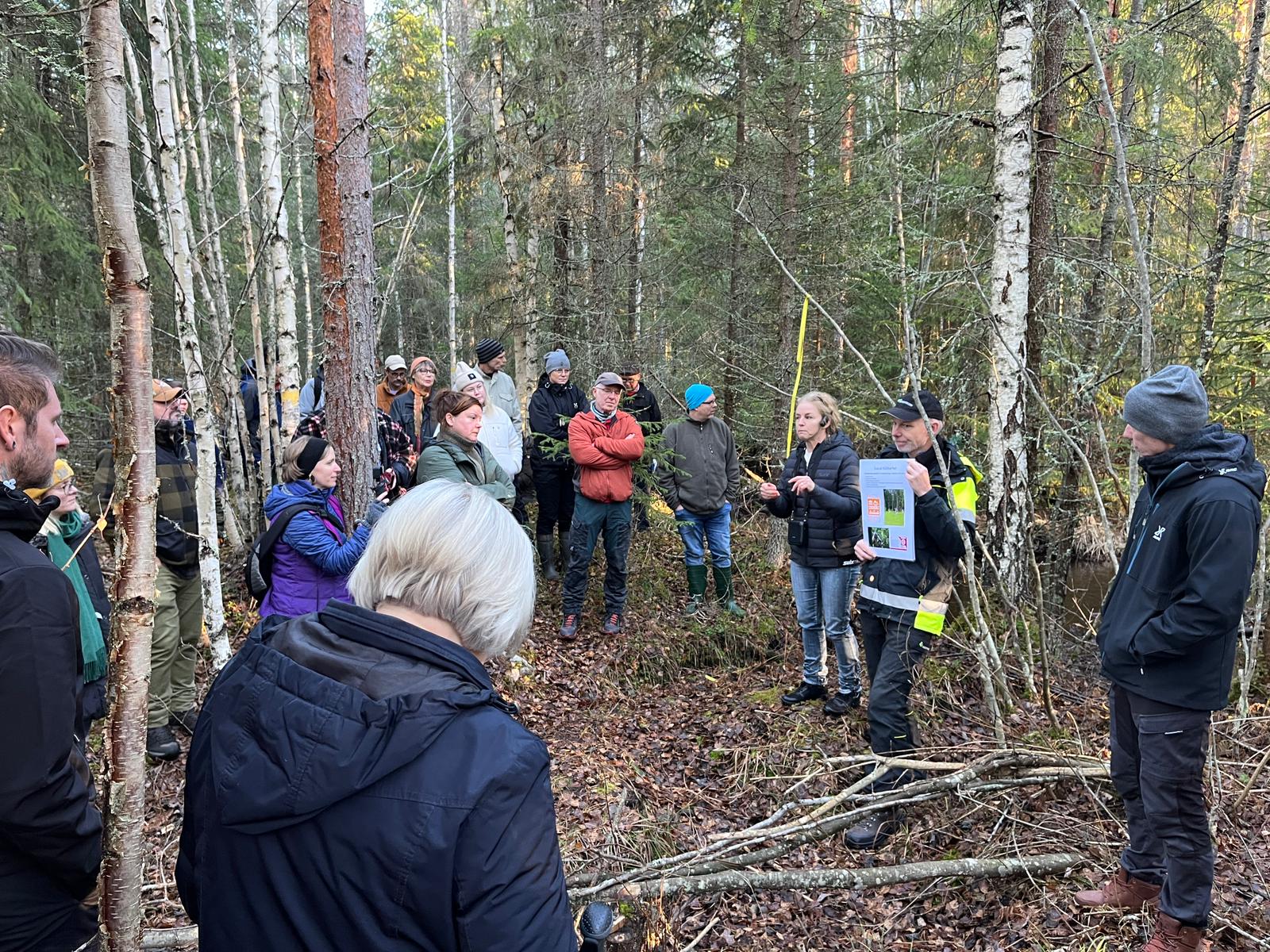
Opposition to clear-cutting and support for local benefits
After lectures and small-group discussions, the jury examined different forest management methods. A clear majority expressed opposition to clear-cutting in municipally-owned forests. There was also strong support for:
- Timber from these forests being used locally
- The proportion of protected forest increasing
- Forests being made more accessible to residents
- Municipalities testing new and innovative forestry methods
The jury emphasized the need to balance ecological, social, and economic goals in forest management. Forests are not seen merely as an economic resource, but also as a place for quality of life, ecosystem services, and cultural identity.
Lessons from the process
The jury’s work was evaluated both internally and by external stakeholders. The deliberative method proved capable of handling complex issues in a constructive and informed way. Politicians and officials particularly highlighted the breadth of perspectives contributed by the citizen’s jury, in contrast to more traditional consultation methods.
However, the method was considered resource-intensive, with a cost of about SEK 500,000, covering process management, participant recruitment, compensation, and more. At the same time, it was seen as valuable and with strong potential for application in other policy areas, especially where complex interests are at stake.
Carrying out the process within the framework of a biosphere reserve was judged to be crucial for both implementation and continued follow-up. The biosphere reserve’s networks, knowledge, and long-term perspective enabled broader anchoring of the jury’s results.

A shared vision for sustainable municipal forestry
As a conclusion, participants were asked to formulate individual visions for the future of Voxnadalen. These were compiled into a shared vision approved by the entire jury:
“n a future Voxnadalen and the wider areas of Ljusdal, Ovanåker, and Bollnäs, we create a sustainable and profitable relationship with forest resources, where all stakeholders are included.
The vision emphasizes that municipalities should encourage residents to spend time in the forest for greater well-being, arrange cultural events and activities in forest environments, increase self-sufficiency, and promote reuse and everyday experiences instead of consumption. Special focus was placed on moving parts of schooling into nature, where children can learn about the values of the forest and gain insights from those who have worked in it. Involving children and young people in responsible forestry was considered central to achieving a better balance between ecological, economic, and social values.
The report and process were carried out in collaboration with the Voxnadalen Biosphere Reserve and serve as an example of how UNESCO biosphere reserves can function as arenas for experimental and inclusive community development.
Download the report here (in Swedish):

